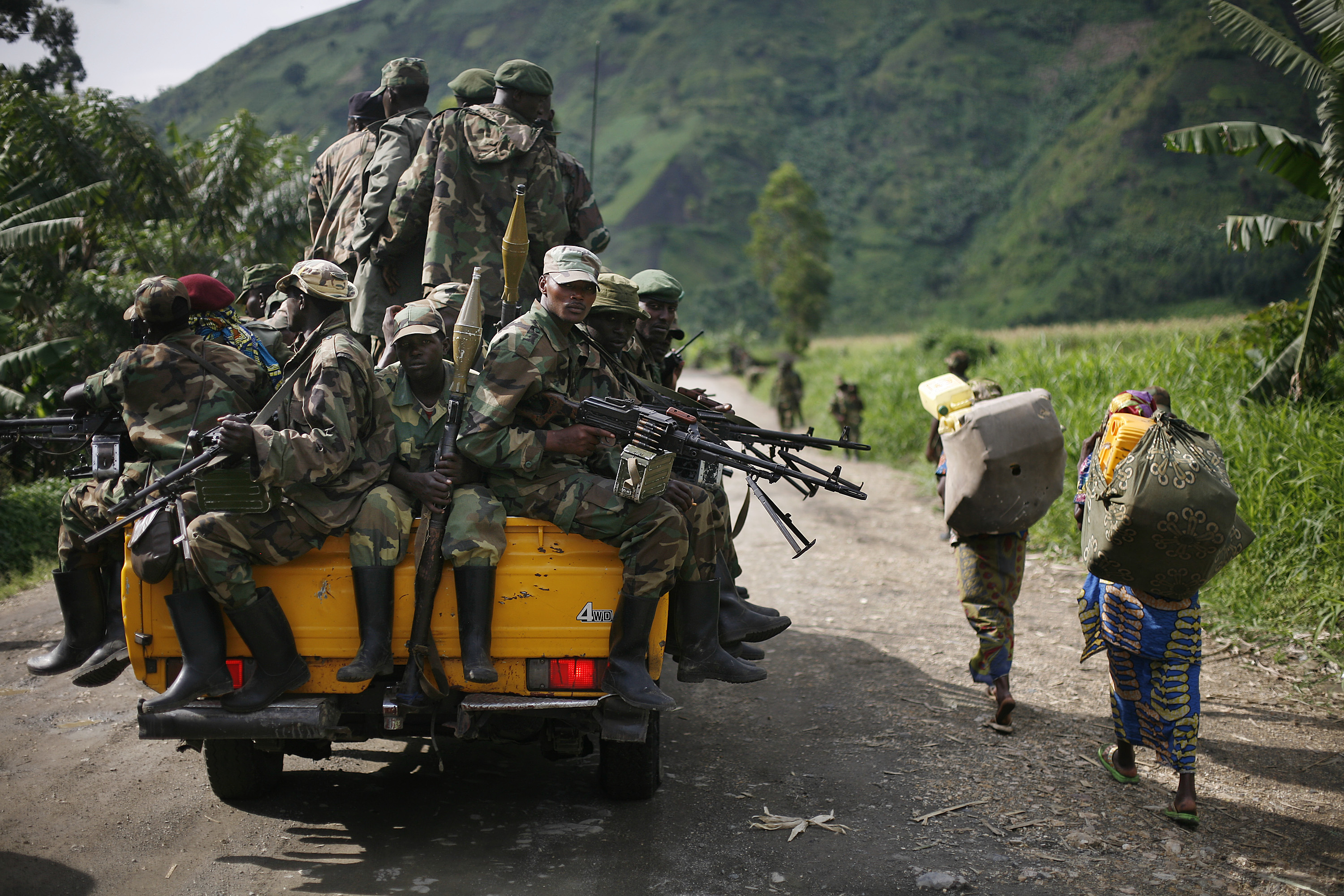
Editor's note: This op-ed originally appeared on The Hill. and was written by Enough Project’s Holly Dranginis and Congolese human rights lawyer Denise Siwatula.
Early last November, the Democratic Republic of Congo and the world celebrated the surrender of the M23 rebel group, marking a watershed moment in Congo's chronically unstable peace process. In December, representatives of the defunct armed group signed declarations with the Congolese government committing to peace. Now there are signs of a possible M23 resurgence. Earlier this week, head of the United Nations’ peacekeeping operation in Congo Martin Kobler told the U.N. Security Council he has credible reports that the M23 has begun new recruitment and resumed activities.
To prevent a resurgence of M23-led violence and restore dignity to victims of the deadliest war since World War II, U.N. Special Envoy to the region former Irish president Mary Robinson and U.S. Special Envoy former Sen. Russ Feingold (D-Wis.) must urge regional heads of state to apprehend and prosecute high-level M23 perpetrators. Uganda must commit to transferring M23’s former commander Sultani Makenga back to Congo, where Congolese authorities must prioritize building the infrastructure to prosecute him and other high-ranking perpetrators of atrocity from all sides of Congo’s conflict.
The M23 was Congo's most formidable armed group until its defeat by the Congolese armed forces in early November. Makenga and others have been indicted by the Congolese government for war crimes and crimes against humanity. A number of the group’s high commanders are now under the auspices of Rwandan and Ugandan authorities, marking another victory given consistent difficulties in apprehending the world’s most wanted accused war criminals. Questions of amnesty dominated peace talks in Kampala last year, with stakeholders clashing over what to do with high-level M23 commanders. Ugandan, Rwandan, and Congolese officials, together with the international community, must generate a plan to deliver justice and reintegrate low-ranking ex-combatants effectively.
Over the course of the M23's nineteen-month campaign of terror, its troops burned villages, murdered whole families, and captured children to deploy into battle. Human Rights Watch and Amnesty International have reported widespread rape by M23 soldiers under Makenga’s command that fractured communities and instilled fear at a low cost. His former co-commander Bosco Ntaganda currently awaits trial at the International Criminal Court for rape and murder. In November 2012, the U.S. placed sanctions against Makenga, other M23 leaders, and the FDLR rebel group to help stop the bloodshed. Evidence also indicates that Makenga facilitated violent gold smuggling networks to funnel riches from Congo's gold reserves.
Makenga's surrender so soon after the fall of the M23 was a rare opportunity to administer justice for some of Congo’s most recent and brutal abuses. But months have passed and Ugandan authorities have yet to come forward with clear information about their fates.
Read the full op-ed on The Hill.
Photo: M23 rebels in eastern Congo (AP)

